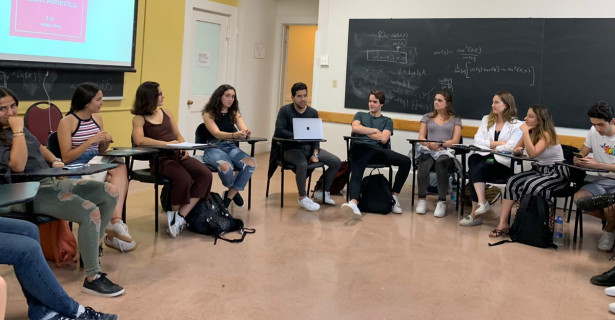The Latin American Committee (LAC) held its first bi-weekly discussion of the semester as a discourse on the role of fake news in Brazil’s elections. The group explored the topic primarily through the lens of WhatsApp, given that the social media platform has increasingly been used as a vehicle to circulate fake news. WhatsApp is an effective means by which to spread disinformation because it is an encrypted messaging service, making it difficult for content to be flagged and taken down. Moreover, the app has a ubiquitous presence in Brazil as two-thirds of the country’s eligible voters are WhatsApp users. The app’s popularity has ledpolitical parties on both the left and the right to disseminate misinformation about their opponents to their constituency through the app’s closed conversation chats.
Finding solutions to the proliferation and influence of fake news quickly became the core of the discussion. Participants questioned which entities should be selected to identify disinformation and provide the public with accurate news. Some argued that the government should be responsible for this task, while others countered that given the Brazilian government’s legacy of corruption, either WhatsApp or a third-partygroup should adopt this role. Emphasizing those on the receiving end of fake news, some argued that the individual should be the focus of efforts to combat misinformation. Media literacy and school educational programs as references for finding and accessing factual information were brought up as ways to educate the individual to distinguish between trustworthy and suspect sources.
Possible solutions were challenged throughout the course of the discussion. Some were hesitant to formally assign the role of screening information to a certain group or groups, given the influence that would come from controlling what is deemed “legitimate” news. Participants also noted that regardless of which actor designates what is considered misinformation, such oversight leads to potential challenges to the individual’s right to free speech. Others noted that given the current polarized nature of politics and media coverage, individuals may choose not to act even if given the tools to recognize factual news, preferring to continue reading and sharing information that reflects their own beliefs. Such issues illustrate the complexity of addressing fake news and further indicate that misinformation will continue to be wielded by actors both in Brazil and around the world to further their own agendas.

